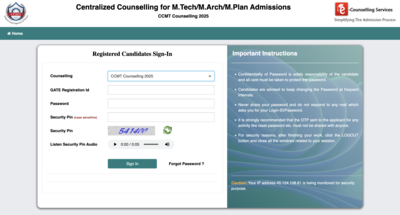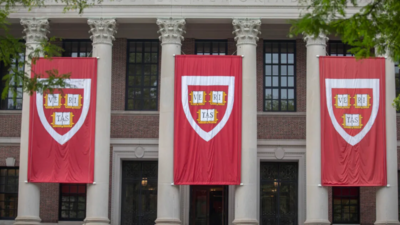
[ad_1]
A crisis is brewing at the very foundation of America’s education system, but it’s one that few see coming. Beneath the surface of declining student math scores lies a quieter failure—the chronic underpreparation of elementary school teachers in foundational mathematics. A recent report by the National Council on Teacher Quality (NCTQ) exposes this fault line with unforgiving clarity: A vast majority of teacher-preparation programmes do not devote adequate time, depth, or focus to essential math concepts like number sense and algebraic reasoning.
The numbers speak volumes. In 2025, only 16% of undergraduate education programmes earned an A or A+ rating from NCTQ. At the graduate level, the situation is even more dire, with a staggering 84% of programmes receiving failing grades. The system, it appears, is handing future teachers a compass without a map—and sending them into classrooms where they are expected to lead.
Foundational math is being sacrificed on the altar of irrelevance
To teach math well, teachers must do more than follow the textbook—they must command its logic, anticipate misconceptions, and translate abstract principles into meaningful instruction. Yet the NCTQ found that many programmes favour lofty mathematical topics like calculus over the bedrock skills needed in elementary education. This is a case of academic prestige blinding practical necessity.
At the heart of this misalignment is a dangerous assumption: That early math concepts are simple and, therefore, easy to teach. But teaching a child to understand the relationships between numbers—to grasp, for instance, why 12 is divisible by 3—requires far more than rote memorisation. It demands mathematical fluency, pedagogical insight, and a profound understanding of how young minds build numerical logic.
The national math report card tells a bleak tale
The consequences of this shortfall are already being felt in America’s classrooms. According to the 2024 National Assessment of Educational Progress, nearly one in four fourth-grade students failed to meet basic math proficiency. Performance in areas such as number operations and algebraic reasoning—once steady—plummeted in 2022 and shows no signs of recovery.
These are not just statistical fluctuations; they are early warning signals of a generation struggling to gain a foothold in mathematics. And the problem does not begin with the students—it begins with their teachers, many of whom arrive in the classroom underprepared, underconfident, and unequipped to reverse the tide.
The pipeline is leaking before it even begins
The average elementary teacher preparation programme offers 136 instructional hours in math, falling short of the 150 hours recommended—with just 105 hours focused on content and 45 on pedagogy according to the NCTCQ report. But the shortfall is not only numerical; it’s intellectual. Courses often fail to distinguish between knowing math and knowing how to teach math. This subtle, but essential, difference is where many programmes falter.
Alarmingly, many teacher candidates themselves carry deep-seated anxieties about math. As faculty members report, a significant number of prospective elementary educators—many of them women—arrive with what can only be described as math trauma, having internalised the belief that they are simply “not good at math.” That belief, if unchallenged, gets passed on to their students like an educational inheritance nobody wants.
One university is setting the gold standard—and raising the bar
There are, however, outliers that point the way forward. The University of Montana, for instance, is among the rare institutions to receive an A+ rating for both undergraduate and graduate teacher-preparation programmes. Its model is refreshingly deliberate: Three courses in math content, followed by two in math pedagogy, ensuring that future teachers are not only literate in math but also capable of translating that literacy into learning.
Their philosophy reflects the realities of rural and multi-grade classrooms, where teachers must craft instruction that adapts to multiple developmental levels simultaneously. In such settings, no textbook can substitute for pedagogical agility and deep content knowledge. As their education dean aptly puts it, teachers must be equipped not merely to deliver material, but to design learning experiences from scratch.
A broken system can’t be fixed with blind evaluation
While NCTQ’s A–F rating system has sparked criticism for relying heavily on syllabi rather than classroom observation, it nonetheless serves a vital function: Holding institutions accountable. The standards were crafted through collaboration with mathematicians, economists, and psychometricians, and they offer at least a barometer of programme rigor—even if not a perfect one.
Yet it is sobering to acknowledge that no national study has definitively linked instructional hours in teacher prep to student outcomes. The road from syllabus to student performance is long and winding. Still, common sense—and mounting evidence—suggests that a teacher cannot teach what they have never truly understood.
Bridging the divide between theory and practice
To bridge this gap, organisations like Deans for Impact have launched initiatives to foster greater synergy between math departments, schools of education, and local school systems. The goal is to build a coherent and research-informed learning pathway for aspiring teachers, one that is grounded in how children actually learn mathematics.
This is not a question of bureaucratic reform or shifting credit hours. It is a question of educational philosophy—of whether we are willing to take the long view, invest in rigorous preparation, and treat elementary math not as child’s play but as the intellectual cornerstone that it truly is.
Is the system gambling with math education?
The math crisis in US elementary schools is not just a curriculum issue or a post-pandemic hangover. It is a systemic failure rooted in a lack of foresight, rigour, and urgency in how we train the educators of tomorrow. If America is serious about reversing its math decline, the effort must start where it matters most—in the teacher preparation programmes that shape the very people entrusted to turn numbers into knowledge.
The verdict is in. The question now is: Will the system rise to meet the challenge or continue to pass the buck down the chalkboard?
[ad_2]
Source link









Be the first to leave a comment